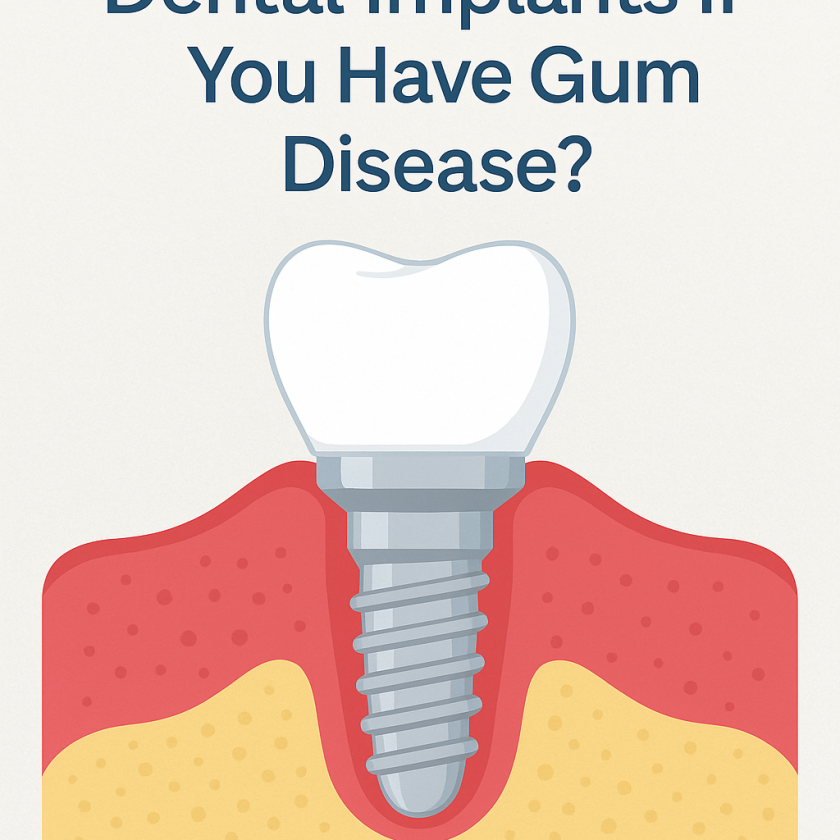Gum disease is one of the most common dental issues in adults, and if you’ve lost a tooth because of it, you might be wondering whether dental implants are still possible. The short answer is yes, but only once your gums are healthy and stable. Successful implant treatment depends on a strong foundation of healthy bone and tissue, which is why managing gum disease comes first.
Understanding the Link Between Gum Health and Implants
Dental implants act like artificial tooth roots, placed securely into your jawbone to support a replacement tooth. For them to work long term, the bone and gums surrounding the implant need to be free of active infection. Gum disease, also known as periodontal disease, attacks these very structures, so leaving it untreated could cause implant failure.
That’s why it’s essential to treat gum disease before considering implants. Early-stage gum disease (gingivitis) is often reversible with professional cleaning and good oral hygiene. More advanced stages (periodontitis) can usually be managed with deep cleaning, root planing, and regular maintenance from your dentist and hygienist.
What Happens Before Implant Treatment
Before any dental implant procedure, your dentist will carry out a thorough assessment to check the health of your gums and bone. If you have gum disease, treatment will be recommended first. This may involve multiple hygiene appointments, scaling and polishing, or specialist periodontal care.
Once your gums are healthy and there’s no active infection, implant planning can begin. Some patients who have lost bone because of gum disease may also need bone grafting or guided bone regeneration to strengthen the jaw. These steps ensure the implant has the best chance of integrating successfully.
Ongoing Care After Implants
Even after implant placement, gum care remains critical. Without good hygiene, a condition called peri-implantitis can develop, which is similar to gum disease but affects the tissues around the implant. Regular check-ups and professional cleanings help prevent this and keep both your implants and natural teeth in great shape.
Why Choose Coppice View Dental for Implants
At Coppice View Dental in Harrogate, our experienced clinicians carefully assess your oral health to ensure implants are right for you. We combine advanced technology with a caring approach to create long-lasting, natural-looking results. Whether you’re recovering from gum disease or exploring tooth replacement options, we’ll guide you through every step of the process — from initial consultation to final restoration.
The Bottom Line
You can absolutely have dental implants after gum disease, provided your gums and bone are healthy enough to support them. With the right care, implants can restore your smile and confidence for years to come.
If you’re considering implants and want expert advice tailored to your situation, contact Coppice View Dental today to book a consultation.












